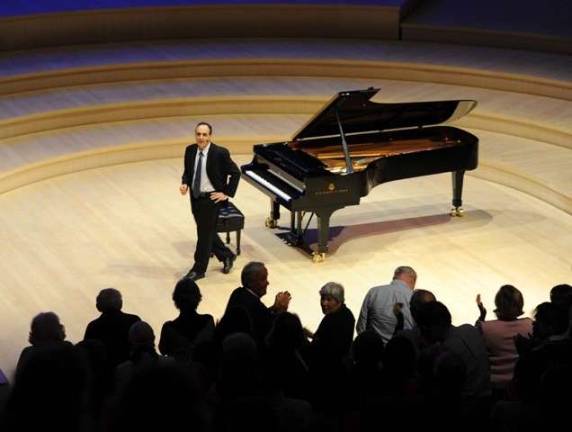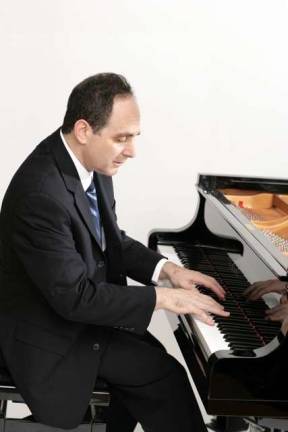Music meets medicine


You would not expect to find such melodic happenings at a medical institution—but at the Weill Cornell Medical Center, the halls are alive with the sound of music.
It began about five years ago, when Dr. David Shapiro noticed that a surprising number of students applying to Weill Cornell Medical College on the Upper East Side had serious musical talents. It dawned on Shapiro, a psychiatrist and professor, that students should not give up one passion for another, but rather combine them. Thus was born the Music and Medicine Initiative, which offers musical activities that encompass jazz, choral and orchestral ensembles. Some kind of musical happening springs from the Initiative at any time, even if it is just nurses, doctors, residents and professors jamming for locals to enjoy. On March 10th, the Music and Medicine Orchestra will play a concert at Julliard.
The first person Shapiro called, when the idea occurred to him, was Dr. Richard Kogan, another psychiatrist and professor associated with Weill. Kogan himself had merged psychiatric expertise with piano mastery, performing solo concerts in venues large and small. “It began when the American Psychiatric Association asked me to do something on mental illness and creativity,” he recalls. He intersperses performing the works of famous composers with a narrative of their lives.
“The more I read about the artists, the more they sounded like my patients,” Kogan says. At the end of January, he presented a talk on Chopin — who suffered from mood swings, depression and performance anxiety — to a full auditorium at Rockefeller University. He played several of the composer’s best-known pieces, including his “Revolutionary” Etude (also known as “The Bombardment of Warsaw”) about Chopin’s home country, which he yearned for but did not return to, and Piano Sonata No. 2, which includes what Kogan called the most famous funeral march ever composed. The event was sponsored by Memorial Sloan Kettering, one of three facilities that are neighbors on York Avenue and share in the bounties of the Initiative.
Kogan — who enjoys pointing out pieces that have been dedicated to composers’ psychiatrists, including Rachmaninoff’s Second Piano Concerto — immediately signed on as Artistic Director of the Music and Medicine Initiative. “For many years, I led parallel lives,” he says. “So I am proud to be part of a project that brings a more humanistic approach to medicine and has made our medical center the most music friendly in the country.”
Weill Cornell collaborates with places like Julliard, where there is a nice synchronicity: Weill Cornell provides health care for Julliard as well as other performing arts entities. The medical school’s graduation is held at Carnegie Hall, where the new graduates perform as well as receive diplomas. The Steinway Company has given three of its classic pianos to the school; 20 percent of its sales have been to physicians. Who knew?
Kogan speaks of the “healing” powers of music and both he and Shapiro see benefits to the future physicians and their patients alike. “I really do believe that musicians make better doctors than non-musicians,” says Shapiro. As for the students, the lure of mixing music and medicine has an obvious impact. “The program was definitely a big draw for coming to Weill Cornell,” says one, Lisa Zhang. “Not only is it well funded and promoted with enthusiasm, but students are heavily encouraged to introduce new initiatives and shape the organization.”
“I am a medical student first,” adds Mark Sonnick, “but it is also important to have outlets when one is engaged in such a strenuous academic undertaking.” Another student, Peter Hung, goes a step further: “Actually, everything cool that I’ve done in med school seems to have to do with music. Putting on mini-recitals for patients, orchestra with Julliard, graduation at Carnegie Hall, jam sessions with classmates. On some days I practice more than I study!”